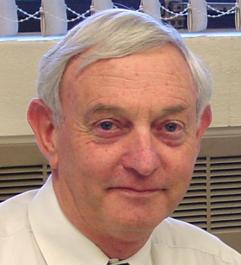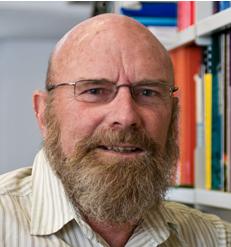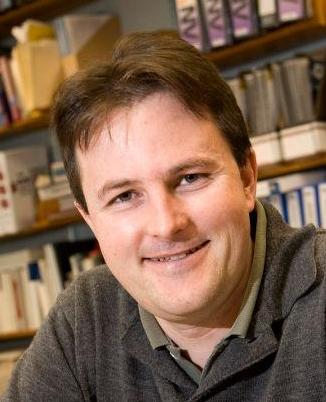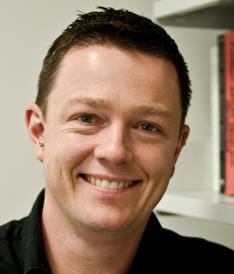The New Zealand Association of Scientists last night presented its annual awards at a ceremony in Wellington. The winners were recognised for their contributions to research in New Zealand while Dr Marc Wilson picked up the science communicator award for his extensive work with the media, general public and schools.
The winners included:
Marsden Medal Professor Brian Robinson
 Professor Robinson has served the Chemistry Department of Otago University for over 40 years, and taken a very active role in all areas. Although his core research area has been organometallic chemistry, he has continued to be very innovative in examining new areas. His publications have been widely cited in the scientific literature; his work has been appreciated internationally. In addition to the normal roles in teaching, mentoring and research he has served as Head of Department for 10 years, and his service role has been extensive in several areas such as quality assurance and academic audits, controlling chemical hazards, safety, and commercial developments. In all this Brian has maintained an innovative approach to new areas of chemistry – he has served science extremely well.
Professor Robinson has served the Chemistry Department of Otago University for over 40 years, and taken a very active role in all areas. Although his core research area has been organometallic chemistry, he has continued to be very innovative in examining new areas. His publications have been widely cited in the scientific literature; his work has been appreciated internationally. In addition to the normal roles in teaching, mentoring and research he has served as Head of Department for 10 years, and his service role has been extensive in several areas such as quality assurance and academic audits, controlling chemical hazards, safety, and commercial developments. In all this Brian has maintained an innovative approach to new areas of chemistry – he has served science extremely well.
Shorland Medal Professor Ken McNatty
 Professor Kenneth McNatty is one of the world’s leading figures in reproduction biology, having made a number of important basic research discoveries and then seen them through to applications with significant economic benefits. He is the author of 260 peer-reviewed research papers and holds 10 patents. Ken’s reputation was founded on a number of discoveries during the ’70s and ’80s relating to follicular development and egg viability and the differences between humans, sheep and cattle. This work led to Ken becoming a Fellow of the Royal Society of New Zealand in 1992, having been nominated by Brian Shorland. Further fundamental research on ovulation followed, and provided insight into the system that regulates the number of eggs released at ovulation. This work provided the basis upon which Ken’s team at AgResearch developed AdroVax, a sheep twinning vaccine that has made a substantial contribution to the New Zealand economy, estimated to be in excess of $100 million per annum. Now based at Victoria University, Ken continues to develop new insights into reproduction, with projects focussed on human health, agricultural benefits, environmental impacts on reproduction and even seeking to improve rates and success of reproduction in New Zealand’s native avian fauna.
Professor Kenneth McNatty is one of the world’s leading figures in reproduction biology, having made a number of important basic research discoveries and then seen them through to applications with significant economic benefits. He is the author of 260 peer-reviewed research papers and holds 10 patents. Ken’s reputation was founded on a number of discoveries during the ’70s and ’80s relating to follicular development and egg viability and the differences between humans, sheep and cattle. This work led to Ken becoming a Fellow of the Royal Society of New Zealand in 1992, having been nominated by Brian Shorland. Further fundamental research on ovulation followed, and provided insight into the system that regulates the number of eggs released at ovulation. This work provided the basis upon which Ken’s team at AgResearch developed AdroVax, a sheep twinning vaccine that has made a substantial contribution to the New Zealand economy, estimated to be in excess of $100 million per annum. Now based at Victoria University, Ken continues to develop new insights into reproduction, with projects focussed on human health, agricultural benefits, environmental impacts on reproduction and even seeking to improve rates and success of reproduction in New Zealand’s native avian fauna.
Research Medal Dr Shaun Hendy
 Dr Shaun Hendy has pioneered, established and continued the transformational research area of Theoretical Nanotechnology in New Zealand. Shaun’s major research discoveries include identifying new solid-liquid phase behaviour induced from nano-scale collisions, and the classification of novel recoil behaviour of nano-particles. These new phenomena are absent from both the smaller atomic-scale, and from the larger macro-scale. Their discovery by Shaun attests to his scholarship, especially given the very applied and industrially-motivated aims of the research programmes. Shaun’s mathematical discoveries have resulted from the application of new numerical methods, called Hybrid-Kinetic Monte Carlo methods, developed jointly with Prof Tim Schulze from the University of Tennessee, which allow both a fine computational grid where significant atomic redistribution is occurring, but with a coarse grid where atomic distributions are largely static. Shaun has also discovered new laws relating at the nano-scale, for the drag between a liquid and a solid surface; and obtained new results for droplet entry into nano-tubes. His IRL responsibilities have included successful application for, and management of over NZ$20M of research contracts.
Dr Shaun Hendy has pioneered, established and continued the transformational research area of Theoretical Nanotechnology in New Zealand. Shaun’s major research discoveries include identifying new solid-liquid phase behaviour induced from nano-scale collisions, and the classification of novel recoil behaviour of nano-particles. These new phenomena are absent from both the smaller atomic-scale, and from the larger macro-scale. Their discovery by Shaun attests to his scholarship, especially given the very applied and industrially-motivated aims of the research programmes. Shaun’s mathematical discoveries have resulted from the application of new numerical methods, called Hybrid-Kinetic Monte Carlo methods, developed jointly with Prof Tim Schulze from the University of Tennessee, which allow both a fine computational grid where significant atomic redistribution is occurring, but with a coarse grid where atomic distributions are largely static. Shaun has also discovered new laws relating at the nano-scale, for the drag between a liquid and a solid surface; and obtained new results for droplet entry into nano-tubes. His IRL responsibilities have included successful application for, and management of over NZ$20M of research contracts.
Shaun has been employed at IRL since 1998, where he is a Distinguished Scientist and is currently Deputy Director of the MacDiarmid Institute for Advanced Materials and Nanotechnology.
Dr Marc Wilson Science Communicator’s Award
Click below to listen to Dr Marc Wilson’s speech at the NZAS awards.
 Dr Marc Wilson describes himself as ‘intellectually indigenous’ to Victoria University, having started studying psychology there in 1991 and never leaving. After completing his PhD in 1999, trying to secure a permanent job involved doing some of the, ahem, less popular academic jobs at the time. These included teaching research methods to 100-level psychology students in one of the largest courses offer at VUW, and so it all began. Marc is a teacher, first and foremost, whether this involves teaching formal classes, or through print, radio, and television media. He regularly presents to schools, organisations, and anyone else who will listen and, taking seriously the obligation of tertiary education in New Zealand to contribute to “the development of cultural and intellectual life”, he has gone out of his way to help out various media organisations in New Zealand. Marc routinely crops us to provide commentary on topical social issues – after all, what better way to champion one’s discipline than through media willing to do the work for you? In the words of one journalist “I swear to God, you seem to be the only psychologist in Wellington who speaks to the media”.
Dr Marc Wilson describes himself as ‘intellectually indigenous’ to Victoria University, having started studying psychology there in 1991 and never leaving. After completing his PhD in 1999, trying to secure a permanent job involved doing some of the, ahem, less popular academic jobs at the time. These included teaching research methods to 100-level psychology students in one of the largest courses offer at VUW, and so it all began. Marc is a teacher, first and foremost, whether this involves teaching formal classes, or through print, radio, and television media. He regularly presents to schools, organisations, and anyone else who will listen and, taking seriously the obligation of tertiary education in New Zealand to contribute to “the development of cultural and intellectual life”, he has gone out of his way to help out various media organisations in New Zealand. Marc routinely crops us to provide commentary on topical social issues – after all, what better way to champion one’s discipline than through media willing to do the work for you? In the words of one journalist “I swear to God, you seem to be the only psychologist in Wellington who speaks to the media”.
Marc has won both local and national recognition for his teaching, and this has lead to the opportunity of an academic lifetime – the chance to design material for, and present, two series of TVNZ’s consumer psychology ‘The School of…’ series in 2007 and 2008 (watched by more than 800,000 people). He has collaborated with several outlets (including TV3 and the Sunday Star Times) on large scale studies on topics such as supernatural and superstitious beliefs, and personality and criminality, which have also served as vehicles for data collection for his research – these partnerships are a win-win for both academics and media. Most recently he has been engaged in a study of public beliefs about evolution that has involved surveying Fellows and Members of the Royal Society of New Zealand, Secondary School science teachers, members of the general public, and (because it’s traditional) first-year Psychology students. On the downside he has also been described by Paul Henry as a “Kiwi cultural commentator”.